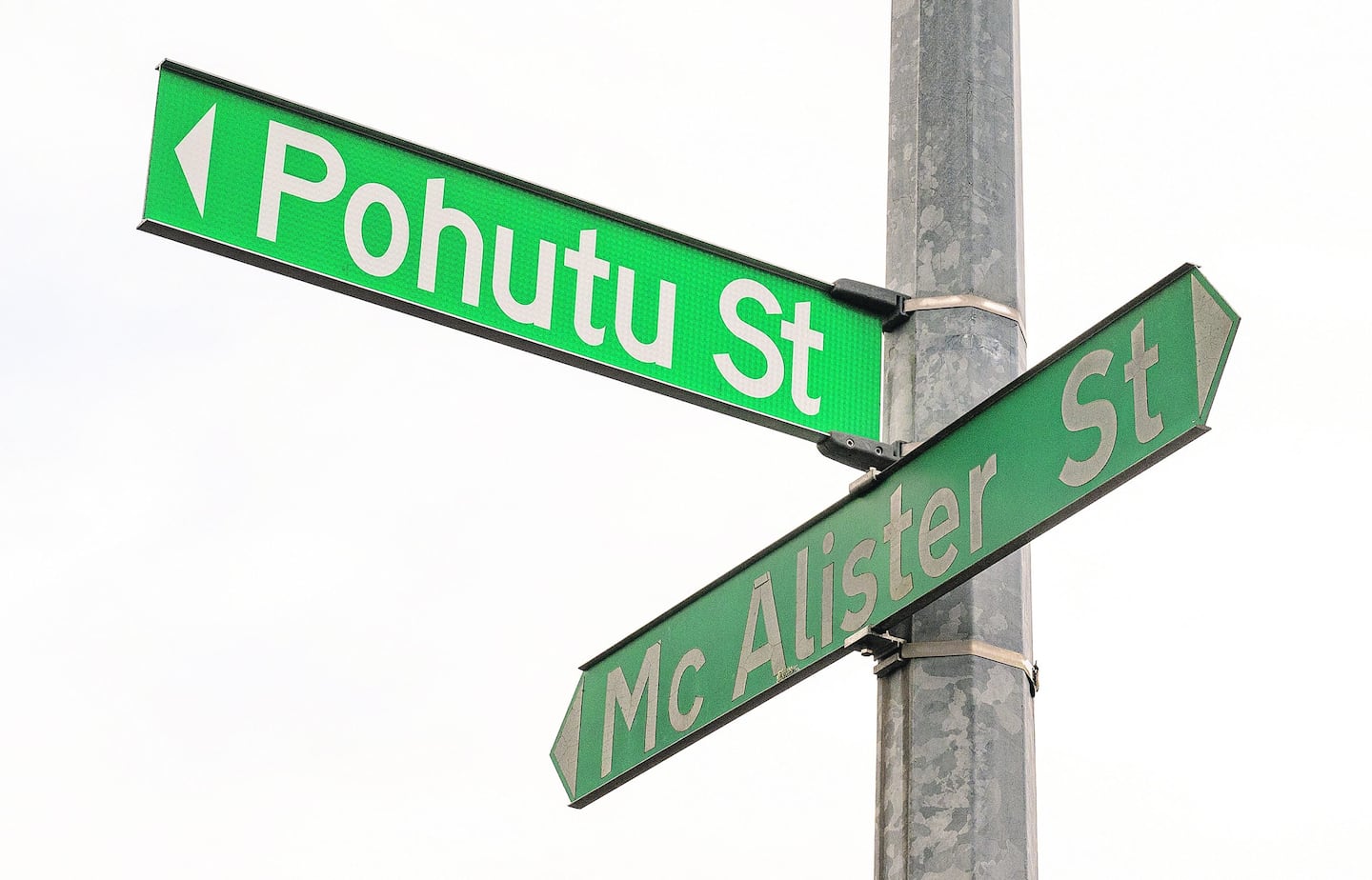Māori place names can help reclaim the “history of our whakapapa”, an environmental planning expert told a hearing on Whakatāne District Council’s new road naming policy.
Kataraina Belshaw-O’Brien spoke on behalf of Ngāi Tamawera, a hapū of Ngāti Awa in Te Teko, to support the policy, which has been updated to consider Treaty of Waitangi principles by engaging with the appropriate iwi and hapū when naming roads.
She said the subdivision where she and her husband lived was developed through a Māori trust, resulting in all the streets being named for their tupuna.
“So, when my daughter and our mokopuna come home, they feel at home, because they see the whakapapa in the street naming.
“However, right next to us, we have a subdivision that has a very colonial place naming arrangement. That is a different whakapapa, but it is right next to us.
“There is a place for that, but I think the history of our whakapapa should be more prominent.”
With a masters degree in environmental planning from University of Waikato, Ms Belshaw-O’Brien said she was passionate about the subject. She had written her dissertation on the renaming and reclaiming of place names and the importance of resurrecting cultural histories through naming.
“Māori have suffered in the past, loss of language, loss of economics, loss of life and loss of whenua, so enabling a space where their ability to remember histories can be achieved through place names.
“I just want to applaud this council for amending this policy and making it current. It’s quite brave in the current times that we are in, to be inserting Treaty clauses.”
A wide range of views were given in the 27 submissions received by the council on its new road naming policy, although Ms Belshaw-O’Brien was the only person to speak at the hearing.
Of the submissions, 10 supported the new policy, and 16 were opposed. Besides Ngāi Tamahera, groups who submitted in support were Te Mana o Ngāti Rangitihi Trust, Tūhoe Te Uru Taumatua, developers PAG Enterprises and Whakatāne Action Group.
Comments from those opposed to the policy included, “a joke”, “a foolish waste of ratepayers’ money” and “woke, PC crap”.
One person felt there were more important things to worry about and paraphrased Shakespeare by commenting “A road by any other name would smell as street”.
Councillors Andrew Iles and Gavin Dennis both commented that in feedback they received from the public, many people were of the misunderstanding that the policy’s intent was to rename roads throughout the district with Māori names.
When people were told that this was not the case, they were reassured.
Submissions also reflected this belief.
“Often names are a memorial to those who contributed a great deal to this community ... old names should be left alone,” was one comment from Raewyn Kingsley Smith.
Property developer Barney Grey agreed.
“The road naming policy needs to be inclusive of all nationalities.”
Acting chief executive David Bewley clarified that while the policy set up a process to consider any applications they received for renaming, the policy did not promote any name changes.
Several submitters were concerned with the amount of time that consulting with iwi and hapū took, with varying suggestions for time limits allowed for iwi to respond to an application.
A time of six months was agreed on as giving all parties time to meet and agree on names. Developers creating new roads would be expected to begin this process when they first applied for resource consent rather than leaving it until the end of the project.
The final policy will be adopted at a full council meeting on August 15.
Kawerau also develops naming policy
Meanwhile, Kawerau District Council has also created a draft naming policy which will be notified for public consultation starting next week.
Kawerau has not had a formal naming policy in the past, instead using an informal process in that an applicant would request a name in writing and engaging with Ngāti Tūwharetoa kaumatua to ensure the name is not inappropriate.
The new naming policy would cover the naming of roads, reserves, features such as tracks, lookouts and sites of cultural significance and council facilities.
The draft policy will continue to see the council partner with Ngāti Tūwharetoa and proposes names will have to reflect one or more of a list of requirements. These include identity of Kawerau, historical or cultural significance of the area, flora, fauna or topographical features of the area and continuation of an existing theme.
The submission period is from August 5 to September 6 and a hearing date is set aside for September 25.
LDR is local body journalism co-funded by RNZ and NZ On Air




